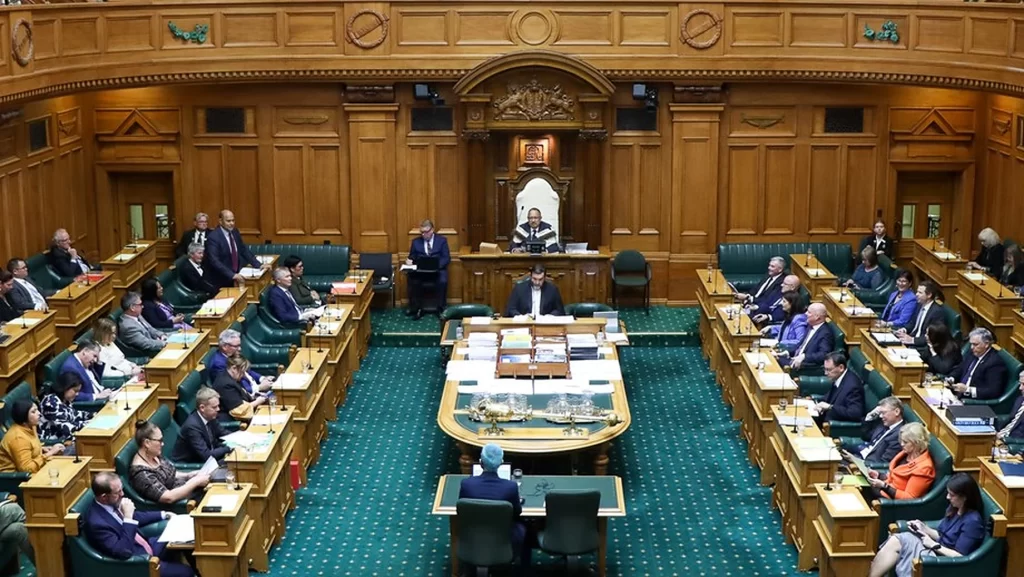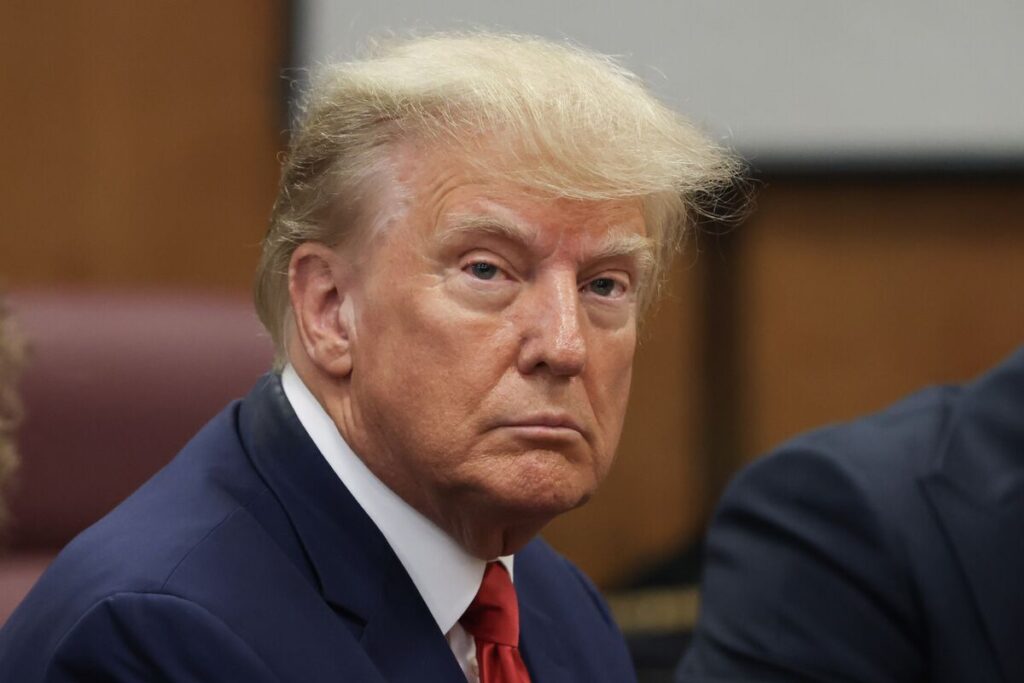In the midst of escalating calls for cryptocurrency regulation across the globe and the ongoing debate surrounding enforcement-based approaches, a recently issued report to the New Zealand Parliament advocates for a measured and adaptable strategy.
Initiated by the Finance and Expenditure Committee of the New Zealand House of Representatives in 2021, this comprehensive report titled “Exploration of Cryptocurrency: Current State, Future Prospects, and Potential Risks” emphasizes the importance of a gradual and flexible regulatory stance.
Jointly authored by a legal expert from MinterEllisonRuddWatts law firm and an associate professor of commercial law at the University of Auckland, this 99-page document meticulously reviewed public opinions gathered earlier and offers 22 prudent recommendations.
Overall, the report displayed a positive perspective on blockchain technology and digital assets.
While acknowledging persistent challenges such as price volatility, environmental concerns, and illicit activities, the report discouraged the imposition of overly stringent limitations, contending that such restrictions could impede the viability and competitive edge of businesses that increasingly embrace cryptocurrency payments.
The report also cautioned against a preemptive regulatory push:
“Developing and instituting a comprehensive regulatory framework would be an intricate endeavor. […] Based on our assessment, regulatory bodies lack the necessary resources and infrastructure for effective management.”
“Instead, we propose that issues be tackled as they surface.
“Our suggestion is for the Government and regulators to establish consistent and coherent guidelines pertaining to the treatment of digital assets within existing legal frameworks,” the report emphasized.
It further advised local legislators to monitor regulatory advancements in the United States, United Kingdom, and Australia before devising domestic policies.
Certain regulatory interventions are deemed essential.
READ MORE: Coinbase’s ‘Stand with Crypto Alliance’ Gains Momentum Amidst Lawmaker Engagement Push
The report urges the Financial Markets Authority (FMA) to introduce a novel investment category tailored for digital assets, incorporating a sandbox provision, alongside a distinct category for personal property.
Furthermore, the report advocates for the FMA to spearhead a dedicated subcommittee within the Council of Financial Regulators, tasked with furnishing expert counsel and a synchronized approach to address industry-related challenges.
Concurrently, a more comprehensive task force, encompassing representatives from pertinent government entities including law enforcement, tax authorities, and the central bank, should be convened to engage with the digital asset sector.
The report concluded by underscoring the need to sustain research into central bank digital currencies.
In a landscape where the cacophony for cryptocurrency regulations is crescendoing, the New Zealand report stands out as a call for prudent and adaptable action, promoting a harmonious equilibrium between innovation and oversight.
Other Stories:
Silvergate Bank Undergoes Executive Shake-Up Amid Crypto Transition and Legal Challenges
Stellar Development Foundation Invests in MoneyGram International
Former US President Donald Trump’s Ethereum Wallet Surges to $2.8 Million
In a recent update on X (formerly Twitter), David Schwartz, Chief Technology Officer of Ripple Labs, shed light on a recent development concerning the United States Securities and Exchange Commission’s (SEC) appeal.
Schwartz indicated that the SEC’s appeal is predicated on their interpretation that the ongoing legal case has not yet reached its conclusion.
This perspective grants parties involved the opportunity to appeal subsequent to the finalization of the case.
This procedural approach aims to streamline legal proceedings and prevent ongoing disruptions to the core case due to multiple appeals on minor rulings.
After Judge Analisa Torres’ ruling on July 13, which declared that the sale of XRP on digital asset exchanges does not qualify it as a security, the SEC has taken the step to file an appeal.
While this move by the SEC was prompted by the favorable outcome for Ripple, its focus centers on an unexpected twist within the legal proceedings.
Schwartz affirmed that consolidating appeals is crucial to streamline the process, as separate appeals are likely to protract the legal proceedings further.
READ MORE: Bitcoin Hovers Near 2-Month Lows Amidst Extensive Liquidations and Market Uncertainty
However, he clarified a rule applicable to specific scenarios.
The SEC contends that the unique circumstances in this instance warrant a different approach.
The SEC proposes a suspension of the process until the appeal is resolved, a proposition that Ripple does not endorse.
Ripple maintains that, even if the SEC is entitled to appeal, the primary lawsuit should continue while the appeal process unfolds.
This approach aligns with the notion of allowing the trial to proceed and addressing appeals diligently once all other matters are settled.
Schwartz provided additional insight to counter rumors within the Bitcoin community concerning the SEC’s potential intent to appeal Torres’ decision to higher courts.
The ultimate resolution of the legal dispute between Ripple Labs and the SEC may be influenced by the court’s decision on whether to grant the appeal request.
Other Stories:
Tether Discontinues Bitcoin Omni Layer Version Due to Waning Interest
Former US President Donald Trump’s Ethereum Wallet Surges to $2.8 Million
Shiba Inu’s Shibarium Network Restarts Block Production After Temporary Pause
IBM Automation’s Chief Technology Officer, Jerry Cuomo, recently penned a blog post that delves into the potential risks tied to deploying ChatGPT for enterprise purposes.
Cuomo highlights crucial areas of concern that businesses ought to ponder before integrating ChatGPT into their operations.
Despite these concerns, Cuomo ultimately asserts that ChatGPT is suitable solely for non-sensitive data, emphasizing that once information is fed into ChatGPT, its usage becomes opaque and uncontrollable.
Cuomo underscores the inadvertent likelihood of data leakage, posing a legal predicament for companies if confidential customer, partner, or client data seeps into ChatGPT’s training dataset and subsequently becomes public.
Intellectual property concerns also loom large, and Cuomo warns against the inadvertent violation of open-source agreements due to such data leakage.
In line with the IBM blog post, Cuomo states that if proprietary third-party or internal organizational data is inputted into ChatGPT, it morphs into a part of the chatbot’s data framework and could potentially be shared with others seeking relevant insights.
Following the article’s publication, Cointelegraph sought input from OpenAI on the matter.
READ MORE: Silvergate Bank Undergoes Executive Shake-Up Amid Crypto Transition and Legal Challenges
A public relations representative responded via email, asserting that the data would not be shared with other users posing relevant queries.
The representative further directed attention to the existing documentation elucidating ChatGPT’s privacy safeguards, including an explanation of how web users can deactivate their chat history.
OpenAI’s ChatGPT API, as disclosed, has data sharing deactivated by default.
However, critics have voiced concerns that conversations on the web-based iteration are automatically archived.
Users must actively opt out of saving their conversations, despite the utility of the feature in picking up where discussions left off, and the utilization of their data for model training.
Presently, no alternative exists for conserving conversations without consenting to data sharing.
In summary, IBM Automation’s CTO, Jerry Cuomo, has highlighted numerous vulnerabilities inherent in deploying ChatGPT for enterprise applications.
These vulnerabilities encompass inadvertent data leakage, potential legal repercussions, and intellectual property risks.
OpenAI’s response underscores the commitment to data protection, but critics have pointed out discrepancies between the web version’s conversation saving feature and the ability to opt out of data sharing for training.
Other Stories:
Former US President Donald Trump’s Ethereum Wallet Surges to $2.8 Million
Stellar Development Foundation Invests in MoneyGram International
Coinbase’s ‘Stand with Crypto Alliance’ Gains Momentum Amidst Lawmaker Engagement Push
Amidst the ongoing bear market dampening venture capital investments in the cryptocurrency sector, innovative financing avenues like grants have gained prominence as they foster community support and nurture established projects’ growth.
Presently, approximately 40 crypto initiatives, as stated by Blockchain Grants, are extending grants to developers focused on Web3 solutions.
Contrarily, data from Cointelegraph Research underscores that the crypto venture capital space has suffered due to the market downturn, causing a substantial 30% decrease in capital infusion into Web3 projects over the past year.
Grants and venture capital diverge in purpose and prerequisites.
While grants align with particular goals and values, venture capital centers on startups with exponential growth potential and financial profitability.
However, the efficacy of grants rests on reinvesting funds into the project, according to Naveen Agnihotri, CEO of Cumberland Labs.
Agnihotri emphasizes that grants can be a boon for burgeoning crypto projects if funds are channeled back into project development.
Alternatively, venture capital, he notes, can enable founders to bootstrap their projects, given the mutually incentivized engagement between parties.
To sustain accountability and innovation, the SingularityNET team has revamped its Deep Funding grant initiative.
This updated program, now in its third round, will evaluate teams based on milestones, deliverables, and peer revisions.
Proposals are open until September 3 across five funding pools, with over $1.5 million earmarked for AI-related projects.
READ MORE: Former US President Donald Trump’s Ethereum Wallet Surges to $2.8 Million
According to Rafael Presa, operations manager of Deep Funding, grant programs are pivotal in shaping the next phase of crypto industry evolution by supporting innovative ideas, research, and solutions.
Since its inception in 2022, the Deep Funding program has nurtured 28 artificial intelligence (AI) projects through decentralized voting within the SingularityNET ecosystem.
Furthering this trend, the Interledger Foundation employs its grant program to bolster initiatives targeting payment networks for unbanked communities worldwide.
Briana Marbury, CEO of the Interledger Foundation, highlights that grants can alleviate financial constraints faced by entrepreneurs and innovators, enabling ideas that might otherwise remain unrealized.
The program is currently accepting applications, with grants exceeding $100,000 in this round and a deadline of November 21.
Applying for grants necessitates a deep understanding of grantor objectives and priorities, demonstrating a sincere commitment to the program’s essence.
Engaging with the community, soliciting feedback, and refining proposals showcase dedication to collaboration and improvement, according to Presa.
In these challenging market conditions, Naveen Agnihotri advises projects to focus on addressing genuine issues when presenting grant proposals.
He encourages taking advantage of the bear market’s contemplative environment to devise significant ideas and craft comprehensive grant proposals, highlighting that even in lean times, quality ideas attract funding.
In summation, while the bear market impacts venture capital, the rise of grant programs offers a lifeline for crypto projects, nurturing innovation, collaboration, and impactful solutions.
Other Stories:
Coinbase’s ‘Stand with Crypto Alliance’ Gains Momentum Amidst Lawmaker Engagement Push
Silvergate Bank Undergoes Executive Shake-Up Amid Crypto Transition and Legal Challenges
Stellar Development Foundation Invests in MoneyGram International
Former US President Donald Trump’s Ethereum wallet has been revealed to contain more than $2.8 million, according to a newly disclosed financial statement.
Released on August 14 by the nonprofit watchdog group Citizens for Responsibility and Ethics in Washington, the statement exposes that Trump accrued over $4.8 million through licensing fees linked to nonfungible token (NFT) collections that utilized his image.
His crypto-related endeavors, in total, brought in approximately $7.6 million.
This sum stowed in Trump’s Ethereum wallet significantly surpasses the previously stated figure of $250,000 to $500,000, which was disclosed in an April 14 filing.
The disclosure comes as Trump, after his defeat by President Joe Biden in 2020, is aiming for a White House comeback in the 2024 election.
However, this financial revelation is accompanied by a shadow cast by Trump’s indictment in Georgia on August 14. The charges revolve around allegations of Trump and his supporters plotting to disrupt the 2020 presidential election.
READ MORE: Voyager Digital’s Massive Token Transfers Spark Speculation of Impending Sell-Off
Despite his financial successes in the crypto sphere, Trump’s historical skepticism towards digital currencies lingers.
He has questioned the legitimacy of cryptocurrencies, labeling them as potentially “fake” and foreseeing a “disaster waiting to happen.”
Notably, he has expressed distaste for Bitcoin, deeming it a “scam” and expressing his concern about its competition with the US dollar.
In essence, Trump’s Ethereum wallet now holds over $2.8 million, a sum that dwarfs previous estimates.
This disclosure coincides with his aspiration to reclaim the presidency in 2024, despite the backdrop of legal challenges.
Amid his financial accomplishments within the cryptocurrency realm, his enduring skepticism towards digital currencies remains palpable, particularly in his criticisms of Bitcoin’s viability and potential impact on traditional fiat currencies.
Other Stories:
Pro-Bitcoin Politician Surges Ahead in Argentine Presidential Primaries
Former FTX CEO Sam Bankman-Fried Detained in Notorious Brooklyn Jail
Zunami Protocol Issues Warning Amidst Attack on Stablecoin Pools on Curve Finance
Uzbekistan’s financial landscape is undergoing a digital transformation as two prominent private banks, Kapital Bank and Ravnaq Bank, secure the green light from the National Agency for Perspective Projects (NAPP) to participate in the realm of cryptocurrency regulation through the digital sandbox initiative.
A significant development unveiled on August 14th, NAPP’s approval was extended to Ravnaq Bank, thus welcoming them to partake in the pilot program.
This followed the Agency’s announcement in May 2023 confirming Kapital Bank’s involvement in issuing its own crypto card.
Branded as “UzNEX,” the forthcoming Uzbeki crypto card is set to revolutionize the financial sector by synergizing traditional banking services with access to a crypto exchange and an automated exchange mechanism.
Bolstering this innovative venture is a partnership with Mastercard, a global frontrunner in payment systems.
Both Kapital Bank and Ravnaq Bank are diligently working towards a shared goal, aiming to roll out their crypto card offerings to the general public by the close of December 2023.
Notably, they stand as two of the esteemed trio of registered participants within the nation’s digital sandbox experiment.
In a pivotal move commencing from 2023, Uzbekistan’s administration has mandated that only licensed cryptocurrency entities are permitted to offer crypto-related services.
READ MORE: Voyager Digital’s Massive Token Transfers Spark Speculation of Impending Sell-Off
This regulatory pivot comes on the heels of the issuance of the inaugural licenses to local crypto enterprises in November 2022.
Preceding this, the country had barred access to several international crypto exchanges of repute, including Binance, FTX, and Huobi, citing allegations of unauthorized activities.
The nation’s meticulous approach to cryptocurrency oversight was instigated by a presidential decree in 2022 that heralded the inception of NAPP, entrusted with the responsibility of supervising the burgeoning digital assets sector.
Furthermore, the decree not only set the wheels in motion for regulatory clarity but also intricately delineated the legal framework encompassing cryptocurrency mining endeavors within the confines of Uzbekistan.
As these private banks join hands with cutting-edge technology and renowned financial giants, they are poised to shape a pioneering era in Uzbekistan’s financial landscape.
With their sights set on the imminent launch of the UzNEX crypto card and the overarching vision of advancing secure and regulated cryptocurrency services, these institutions are indelibly etching their mark in the digital evolution of finance.
Other Stories:
Zunami Protocol Issues Warning Amidst Attack on Stablecoin Pools on Curve Finance
Former FTX CEO Sam Bankman-Fried Detained in Notorious Brooklyn Jail
Pro-Bitcoin Politician Surges Ahead in Argentine Presidential Primaries
The launch of the Digital Energy Council on August 15 marks a significant development in the United States’ crypto mining sector, aiming to debunk misunderstandings about its environmental impact among policymakers.
The council’s primary objective is to champion policies that foster the expansion of digital asset mining and energy innovation.
Thomas Mapes, the founder and president of the council, emphasized the pressing need for a united voice for digital asset miners in the corridors of power in Washington.
Drawing from his past role as the director of energy at the Chamber of Digital Commerce and his experience as the chief of staff at the U.S. Department of Energy’s Office of International Affairs, Mapes underlined the crucial role of crypto mining companies in the energy ecosystem.
He highlighted how these entities contribute by either supplying energy to the grid during peak demand periods or purchasing excess energy that would otherwise go to waste.
Mapes envisions a future where crypto mining firms evolve into energy companies, alongside established players like utility companies and major power providers.
However, he acknowledged that many lawmakers have yet to share this perspective. Over the past year, legislative measures have been introduced that cast a shadow on the industry’s reputation.
READ MORE: Pro-Bitcoin Politician Surges Ahead in Argentine Presidential Primaries
For instance, in March, the chair of the Senate Environment and Public Works Subcommittee reintroduced legislation alleging that crypto miners strain public grids and release substantial greenhouse gas emissions solely for personal profit.
Mapes further referenced President Biden’s proposal for a 30% excise tax on digital asset mining and the White House’s report on the environmental impact of crypto mining as additional instances that have generated concerns.
Mapes disclosed that the association already boasts a roster of founding members, encompassing both crypto mining and energy companies, some of which are publicly traded entities.
While the association’s initial focus will be on the U.S., Mapes emphasized that both membership and lobbying efforts are concentrated within the country.
In summary, the inauguration of the Digital Energy Council on August 15 signifies a pivotal step in the U.S. crypto mining realm, as it endeavors to correct misconceptions surrounding the sector’s sustainability while advocating for policies conducive to its growth and technological innovation.
Other Stories:
Voyager Digital’s Massive Token Transfers Spark Speculation of Impending Sell-Off
Zunami Protocol Issues Warning Amidst Attack on Stablecoin Pools on Curve Finance
Former FTX CEO Sam Bankman-Fried Detained in Notorious Brooklyn Jail
Decentralized finance platform Zunami Protocol has issued a cautionary advisory against the purchase of its Zunami Ether (zETH) and Zunami USD (UZD) stablecoins.
This move comes in the wake of a security breach that targeted the protocol’s “zStables” pools on Curve Finance.
On August 13th, Zunami Protocol officially acknowledged the attack on its stablecoin pools via a post on its Twitter account.
While ensuring the safety of collateral, the protocol has initiated a thorough investigation to assess the scope and impact of the potential exploit.
Blockchain security firm PeckShield has approximated the stolen amount to be more than $2.1 million from Zunami’s Curve Pool.
The breach is attributed to a price manipulation vulnerability, a sentiment shared by the security experts at Ironblocks, who arrived at a similar conclusion.
The initial detection of the exploit was made by PeckShield on August 13th at 10:47 UTC, with Zunami Protocol confirming the incident about 20 minutes later, underscoring the urgency and swiftness with which the situation unfolded.
READ MORE: Hacker’s Tether Address Blacklisted with Police and Cyber Support, Stolen Crypto Recovery Progresses
Zunami Protocol operates as a decentralized revenue aggregator, offering users the opportunity to yield stake stablecoins. The protocol’s major stablecoin pools are housed within the Curve platform.
The impact of the breach is notably seen on the Zunami USD stablecoin as well as Zunami Ether.
In response to the attack, the zETH and UZD Curve pools operated by Zunami have been prominently marked with red exclamation symbols on the Curve platform, serving as a visual indication of the compromised status.
Cointelegraph, seeking further insights, reached out to Zunami Protocol for commentary on the incident.
However, as of the time of reporting, a response from the protocol has not been received.
As Zunami Protocol grapples with the aftermath of this attack, the broader community is reminded of the ongoing security challenges facing decentralized finance platforms.
This event underscores the significance of robust security measures in the DeFi space to safeguard users’ funds and maintain the trust necessary for the ecosystem’s growth.
Other Stories:
Curve Finance Vows Reimbursement After $62 Million Hack
Former FTX CEO Sam Bankman-Fried’s Bail Revoked Over Witness Intimidation Allegations
A motion to hold co-founder Kyle Davies of the defunct crypto hedge fund Three Arrows Capital (3AC) in contempt of court and impose sanctions has been denied by a judge overseeing the bankruptcy case.
The ruling came from Judge Martin Glenn of the United States Bankruptcy Court for the Southern District of New York in an August 11 filing.
The judge explained that previous rulings on motions related to a subpoena issued to Davies through X, formerly known as Twitter, were made under the assumption that Davies was a U.S. citizen.
However, it was later revealed that Davies is a non-U.S. citizen residing outside the country.
Judge Glenn cited federal laws that govern compelling compliance outside the United States.
He emphasized that his earlier approvals of motions were based on the assumption that Davies held U.S. citizenship.
This assumption was crucial for proper service of the subpoena, which was invalidated due to Davies’ non-U.S. citizenship status.
Davies’ lawyers submitted evidence on August 1 indicating that he had applied to renounce his U.S. citizenship in December 2020 and had become a citizen of Singapore after marrying a Singaporean national.
As Singapore does not permit dual nationality, Davies’ change in citizenship status had significant legal implications.
The judge suggested that foreign representatives could explore the possibility of compelling Davies’ compliance through the Singaporean legal system.
READ MORE: FTX Debtors Clash with Creditors Over Asset Control Amidst Restructuring Plan
Consequently, he dismissed the contempt motion, clarifying that the U.S. court lacked jurisdiction over Davies.
Co-founder Su Zhu of 3AC, who is a Singaporean national and resides outside the United States, was also issued a summons via X.
However, he is not subject to the subpoena due to his non-U.S. residency.
The whereabouts of both Zhu and Davies have largely remained unknown since 3AC’s collapse in July 2022.
Nonetheless, Davies’ lawyers confirmed his residence in Singapore in the August 1 filings.
The liquidators overseeing 3AC’s case are endeavoring to recover approximately $1.3 billion in funds from the two co-founders.
The firm is reported to owe creditors a total of $3.5 billion.
In April, Zhu and Davies played a role in launching Open Exchange, a platform designed to facilitate the trading of claims against insolvent cryptocurrency companies.
Other Stories:
US Bank’s Crypto Holdings Surge to Nearly $170 Million Amid Regulatory Scrutiny
California Updates Campaign Manuals with Detailed Rules for Cryptocurrency Contributions
Hong Kong’s HKVAX Granted Preliminary Approval for Virtual Asset Trading Platform by SFC
The DeFi landscape is grappling with a series of challenges, as it strives to recover from the aftermath of the Curve Finance hack.
While containment efforts are underway, a fresh wave of vulnerabilities emerged within the past week.
Steadefi, a prominent DeFi protocol, finds itself ensnared in an ongoing exploit, compounding the industry’s woes amid the ongoing recovery from the Curve crisis.
In a bid to mitigate risks associated with the Curve token price, Binance stepped in by injecting $5 million into the Curve token, subsequent to the hacker’s partial fund return.
This move aims to stabilize the ecosystem and shore up confidence.
Meanwhile, Aptos, the driving force behind the layer-1 Aptos Network, has solidified a partnership with tech giant Microsoft.
This collaboration is set to catalyze the adoption of Web3 solutions across financial institutions. The Aptos token witnessed an impressive surge, soaring by double digits on the back of this association.
Breaking new ground, Coinbase has accomplished a significant milestone. It has introduced Base, a decentralized layer-2 platform, marking a historic move as the first publicly listed company to venture into this domain.
This development has piqued substantial interest from the DeFi community.
Binance Labs, the investment arm of Binance exchange, made waves by investing $5 million into Curve Finance (CRV), the token underpinning the decentralized stablecoin trading platform.
The platform boasts the distinction of being the largest stableswap and second-largest DEX, currently holding about $2.4 billion in total locked value.
Aptos Network, empowered by the synergy with Microsoft, is on a growth trajectory, recording an impressive 11.6% surge.
READ MORE: Hong Kong’s HKVAX Granted Preliminary Approval for Virtual Asset Trading Platform by SFC
This collaboration harnesses Microsoft’s AI tools to expedite the adoption of Web3 in the realm of banking and finance.
The integration with Microsoft’s Azure OpenAI service will drive innovation in asset tokenization, on-chain payments, and central bank digital currencies.
Coinbase’s Base network has transitioned from an exclusive builder phase to a user onboarding phase, signaling a major milestone.
Several Web3 development teams have capitalized on this opportunity, unveiling apps for the Base network.
The launch has been accompanied by a calendar of celebratory events to commemorate this achievement.
The DeFi ecosystem experienced a setback with the exploitation of Steadefi, resulting in a loss of approximately $334,000.
The development team conveyed the gravity of the situation, stating that all funds are presently at risk. The incident has caused a decline in the app’s total locked value, as confirmed by DefiLlama data.
As the DeFi market faced bearish headwinds over the past week, the top 100 DeFi tokens by market capitalization exhibited a mixed performance, with most tokens experiencing losses.
Despite the challenges, the total value locked in DeFi protocols remained below the $50 billion mark, reflecting the sector’s resilience amid adversity.
Other Stories:
California Updates Campaign Manuals with Detailed Rules for Cryptocurrency Contributions
US Bank’s Crypto Holdings Surge to Nearly $170 Million Amid Regulatory Scrutiny
FTX Debtors Clash with Creditors Over Asset Control Amidst Restructuring Plan












